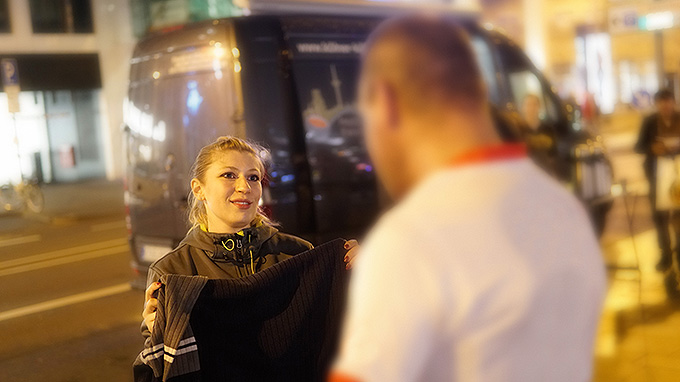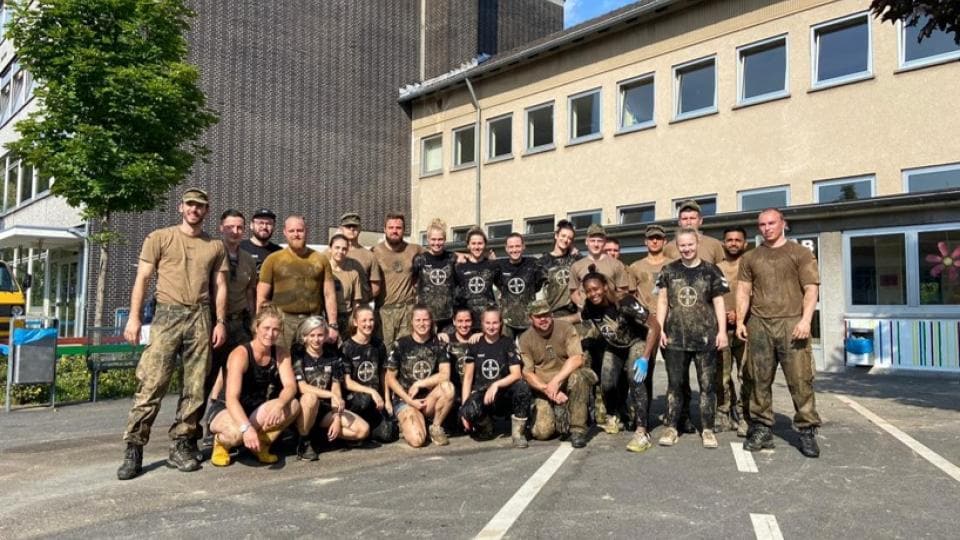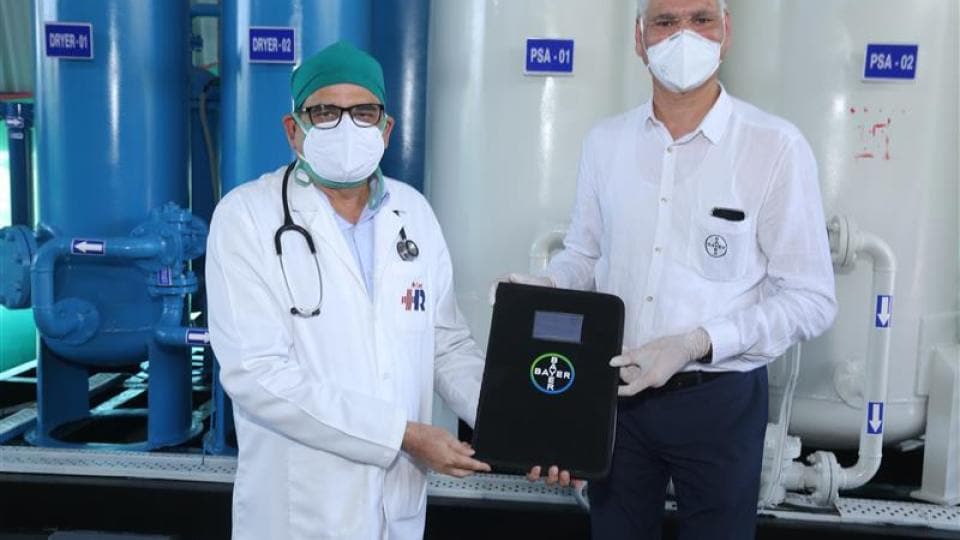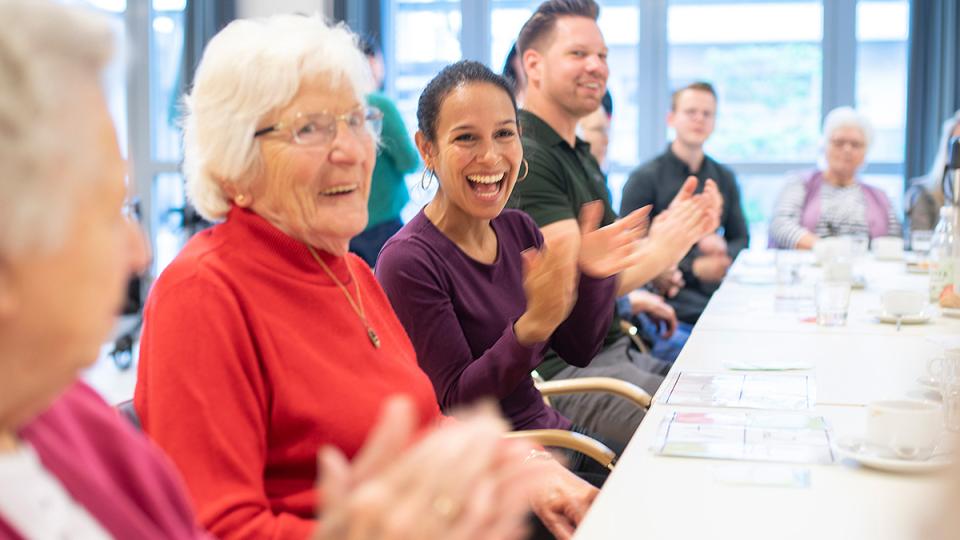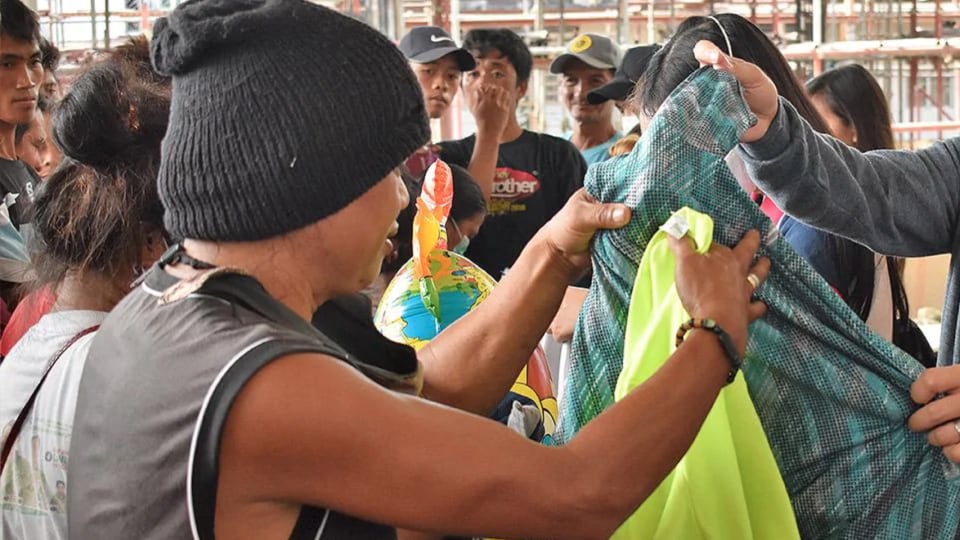Help for refugees in Samos: No refugee should have to walk barefoot

The conditions in the refugee camp on the island of Samos, Greece, are abysmal. And the worst of the cold is yet to come. Bayer staff member Daniela Neuendorf was there as a humanitarian aid worker. She and her team also passed on donations to the refugees – including urgently needed shoes.
Rahman (name changed) and his children made it to the island of Samos on a rubber dinghy after traveling through Türkiye. They lost everything upon fleeing Syria. But they are alive.
His son is eight years old, and his daughter is four. With cuts and open wounds on their feet, they are sitting with Bayer staff member Daniela Neuendorf in the small emergency practice. Neuendorf treats the wounds and bandages their feet. She is actually a project manager and is responsible for Foundations and Societal Engagement at Bayer. While on leave, she works voluntarily to provide emergency humanitarian aid, and together with her husband, she provides care to refugees; meanwhile, their six year-old daughter stays with her grandparents.
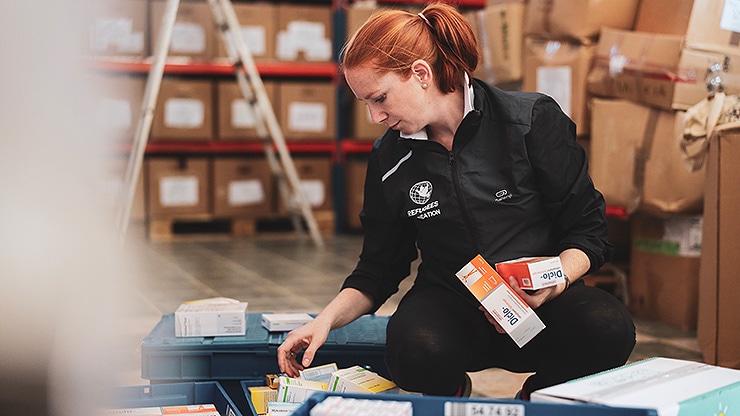
The father from Syria tells her all about the war, how they fled, and about the life he left behind. He was a crane operator, and it was a well-paid and secure job. He nevertheless fled, out of fear for the lives of his children.
“Samos is worse than other camps”
What awaits the three of them on Samos is not easy to imagine without having seen it. Neuendorf arrived with experienced aid workers who have already seen many refugee camps and high levels of poverty. “But Samos is worse than other camps,” she says.
The camp was intended for 650 people, but in October 2019 almost 7,000 people are living there, and one in every two is a child. Everything is in short supply – space, protection, food, clothing, sleeping bags, blankets, toilets, medicines, water, showers, and shoes. Neuendorf and her team therefore also sent a relief truck to Samos.
- 1/7
- 2/7
- 3/7
- 4/7
- 5/7
- 6/7
- 7/7







High in the hills of Samos, they unloaded twelve pallets of goods: medication, bandaging materials, winter clothes for children, shampoo, and diapers. But also 500 pairs of desperately needed shoes. Some of these were donated by Bayer employees, who also assisted with collection and loading. The aid workers organized their efforts using Prosi, a platform through which colleagues in the Bayer Group are able to support one another for good causes.
The refugee camp suddenly went up in flames
The goods should have already been distributed to the refugees the day before. Then late in the evening of October 15, 2019, the refugee camp suddenly went up in flames. “We then had to care for the many wounded, first of all,” said Neuendorf, explaining the reason for the delay.
A French aid organization was renting a small shop premises in Samos’ principal town, Vathy. “There were four or five doctors and one or two nurses or medics working against the clock on the premises of a fast food shop. They were trying to ensure medical care for over 6,000 people.”
Her first mission galvanized her
Neuendorf’s first contact with refugees was four years ago, on the Balkan route in Röszke, Hungary. She was taking bandaging materials, medicines, and milk powder there, and she saw the poverty.
Shortly before that, in September 2015, the body of Alan Kurdi washed up on the shore at the other side in Türkiye. While the photograph of the drowned two year-old Syrian boy circulated around the world, Neuendorf was preparing the transport of relief goods to Lesbos, and was making her way there.
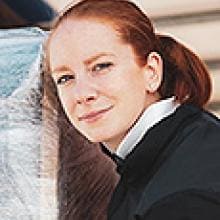
At first, she thought the worst would be over after a year or two. But the refugee crisis continues. She has since set up an organization called Refugees Foundation, and the next initiatives have already been planned: she will head out on her 28th mission over the Christmas period.
After treating their feet, Neuendorf gives the children and their father a pair of shoes each. It is actually prohibited to distribute items discretionarily. “But this was a medical necessity. Treating wounds, applying bandages, and then sending the patient away barefoot makes no sense,” says Neuendorf.
As little sense as war itself. At some point, says the father, when Syria is a safe country again, he wants to return, to be home once more.









